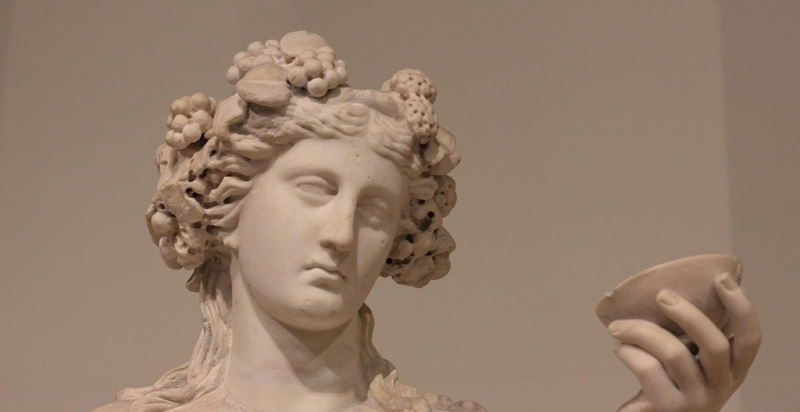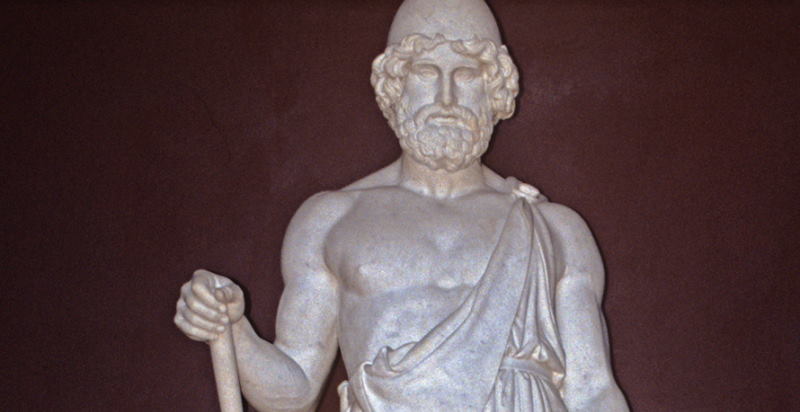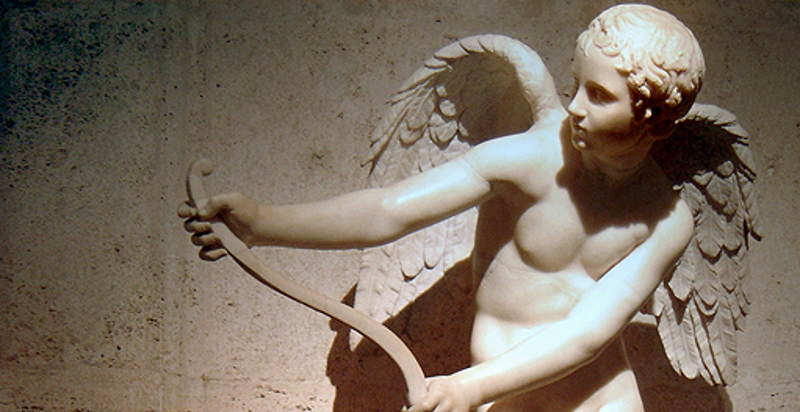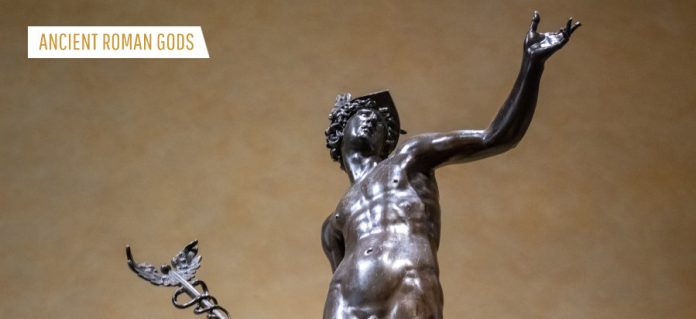The pantheon of Roman gods is considered the greatest of all. The Romans had gods for everything imaginable. They had Mars, the god of war, the sea god, Neptune, Bacchus, the god of wine, and much more. Like all cultures, they also had a wealthy and vibrant mythological background. Although some of their gods are adaptations of the Greek gods, some are initially the god of two-faced doors and gates, Janus. Gods gave the Romans a sense of national pride, understanding of pride and honor, and insight into their destiny. Rome’s traditional religious system can also be found in Roman historical literature and visual arts. The legend of Remus and Romulus is one famous example. The Roman gods had great personalities and great powers. Look at the list of the top 10 Ancient Roman gods to discover out a little more information about them:
10. Bacchus
| Titles: | The God of Wine and Fertility |
| Other names: | Liber Pater |
| Planet: | Jupiter |
| Symbol: | Thyrsus, grapevine, bull, panther, ivy, goat, masks, chalice |
| Greek equivalent: | Dionysus |
Bacchus was the son of mortal Semele and king of the gods, Jupiter. Juno tricked Semele to see him in his divine form, resulting in Semele dead. After seeing the god’s proper form, Jupiter then stitched Bacchus, her unborn child, onto his lap, carried him for nine months, and eventually gave birth to him. Bacchus was related to agriculture, fertility, and wine, and his plants included vines and twirling ivy. His followers are goat-footed demons, and wild girls move vivaciously during his celebrations.

9. Mercury
| Titles: | The God of Financial Poetry, Gain, and Eloquence |
| Other names: | Mercurius |
| Planet: | Mercury |
| Symbol: | Caduceus, winged sandals, a winged hat, tortoise, ram, and rooster |
| Greek equivalent: | Hermes |
Mercury is an essential Roman deity and one part of the Dii Consentes in the Roman population. This god represents tourists, eloquence, poetry, tricks, and thieves. Also, he is believed to lead the soul to the underground world. According to Roman mythology, he was the child of Jupiter and Maia. He is portrayed in idols and paintings as if he had a Caduceus in his left hand, like the corresponding Greek Hermes. A magic mace by the sun god Apollo later transformed it into Caduceus. He also appeared in the literary works of Ovid and Virgil. His temple in Rome was built in Circus Maximus in 495 BC.

8. Vulcan
| Titles: | The God of Fire |
| Other names: | Vulcanus |
| Planet: | Jupiter and Juno |
| Symbol: | Blacksmith’s hammer |
| Greek equivalent: | Hephaestus |
Ancient Roman mythology calls him the god of fire, metalworking, volcanoes, and forgings and is depicted as having a blacksmith’s hammer. He was a Roman equivalent of Hephaistos in Greek mythology. August 23 was celebrated as Vulcanaria, an annual festival named in honor of him. The Romans believed that the Balkans represented both the destructive and fertile powers of fire. Balkan, Jupiter and Juno’s son, was born with a red-turned face and was abandoned by his mother. He was taken to Themis as his son when he was thrown off a cliff and fell deep into the sea.

7. Saturn
| Titles: | The God of Time, Wealth, and Agriculture |
| Other names: | Saturnus |
| Planet: | Saturn |
| Symbol: | Sickle, Scythe |
| Greek equivalent: | Cronus |
Saturn’s reign was considered a prosperous and peaceful golden age. He was known as the god of time, wealth, dissolution, agriculture, renewal, and liberation. According to Varro, Saturn, “the Romans identified him as an agricultural god similar to the Greek god Cronus. He was the child of Uranus and Gaia, and two of his spouses were Ops and Lua. Ops were associated with wealth, abundance, resources, and Lua. He(Lua) was a goddess who sacrificed the weapons captured by the soldiers. Saturn’s festival in the Roman calendar was related to the concept of time, especially the New Year.

6. Cupid
| Titles: | The God of Love |
| Other names: | Cupido |
| Planet: | Mars and Venus |
| Symbol: | Bow and Arrow |
| Greek equivalent: | God Eros |
Cupid, the god of erotic desires, love, charm, and affection, is Mars and Venus’s son. Eros is his Greek partner. Cupids are often found in bows and arrows, which are thought to be the source of power to provoke love and desire in the person hit by the arrow. The lord of love has Psyche as his spouse. He has wings because he has a loved one. Cupid sleeping in his Renaissance art means no love and desire. Cupid’s power to make people fall in love plays a significant role in various mythological stories.

5. Mars
| Titles: | The God of War |
| Other names: | Mavors, Favorite |
| Planet: | Mars |
| Symbol: | The spear of Mars (Spear and shield iconography) |
| Greek equivalent: | Ares |
Mars was considered the guardian of the Roman state as the god of war, and March, named after Mars, was a month full of festivals and military events, and during the reign of Augustus, Mars became more popular. As the most prominent military god in Roman history, he believed in using military power to maintain peace. The life force and force behind Mars, considered to be the personification of Mars’ divine power, but the combination of Mars and Venus has been the subject of many poets and philosophers.

4. Apollo
| Titles: | The God of Sun, Music, and Prophecy |
| Other names: | Phoebus |
| Planet: | Jupiter- Mars |
| Symbol: | Lyre, laurel wreath, python, raven, swan, bow, and arrows |
| Greek equivalent: | Apollo(Same) |
Apollo, Known as the gods of music, healing, sun and light, truth and prophecy, plague, and poetry, Apollo is Jupiter and brother of Diana, one of the most important and complex of the Roman gods. He received the prophecy gift for his sincerity and is known as the Greek and Roman gods’ Pantheon. He is not only powerful but also symbolizes youth, wisdom, and beauty. Apollo was the most beloved god. He represented moral excellence, and his followers dedicated the Order of Delphi to him.

3. Pluto
| Titles: | The God of the Underworld |
| Other names: | Dis Pater |
| Planet: | Pluto |
| Symbol: | Three-headed dog, Cerebus |
| Greek equivalent: | Plouton |
The three sons of Saturn, i.e., Jupiter, Neptune, and Pluto, divided the world. The sky and the seas are Jupiter and Neptune, respectively; The underworld was handed over to Pluto. He is monotonous and is not thought to have had a child. He represents the positive attitude of the god who presides over the afterlife, and his counterpart in Greece is Hades. Puto was soon recognized as the god of the physical underworld. This led him to become the god of the spiritual underworld and thus death. The Romans believed that if they gave his name, they would die. Unexpectedly, the metal plutonium, linked to the planet Pluto, is radioactive and potentially deadly. This substance deserves to belong to the god of death!
2. Neptune
| Titles: | The God of the Sea |
| Other names: | Neptunus |
| Planet: | Neptune |
| Symbol: | Horse, trident, dolphin |
| Greek equivalent: | Poseidon |
Neptune, the Roman god of the sea cargo trident with three prongs, Neptune rode a horse or dolphin and ruled the sea. It was first recognized in Roman mythology as being associated with water around 399 BC. His wife was Goddess Salacia, and his brothers were Jupiter and Pluto. Neptune was known for being a demon-possessed man known as an earthquake god, for his rage and fury were linked to earthquakes.

1. Jupiter
| Titles: | The King of Gods |
| Other names: | Jove |
| Planet: | Jupiter |
| Symbol: | Lightning bolt, eagle, oak tree |
| Greek equivalent: | Zeus |
Jupiter is the great Roman god with his great power, and he is said to rule over light and the sky. The eagle is his sacred animal, and thunder is his weapon of identification. Defender of laws and empire and the Romans believed that Jupiter guarded their city. This term refers not only to his rulership over the gods and the universe but also to his power to establish laws, regulate territories, and communicate through magic. and it was the Roman god of justice, from which comes the expression “By Jove.” The artificial offerings to Jupiter included an ox (a trusted ox), a lamb, and an ox (a trusted ram). This sacrificial animal needed to be white.

Conclusion
The gods of all cultures played an essential role in shaping a person’s moral life, and Roman culture greatly influenced various gods’ worship. Much influenced by Etruscan and Greek cultures, and the deeper you dig, the more you will learn about these fascinating Roman gods!
If you want to know more about the god and goddess of hindu religion and greek goddess. You will get all details here.
